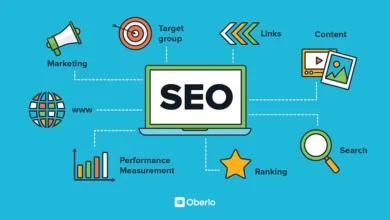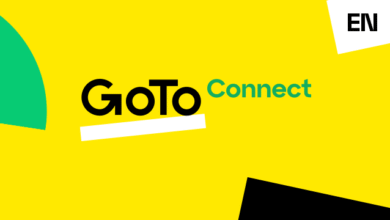
Introduction to Portfolio Recovery
When you hear the term Portfolio Recovery, your first thought might be something related to investment portfolios bouncing back after a market dip. While that’s not entirely wrong, the actual meaning in this context is very different—and far more personal for many people. Portfolio Recovery Associates, now known as PRA Group, is a debt collection agency that buys old debts and tries to collect them. If you’ve ever received a call or letter from them, you’re not alone.
Debt collection is a massive industry in the U.S. and globally, and Portfolio Recovery is one of the major players in this game. They purchase charged-off debts from credit card companies, banks, and other lenders—often for pennies on the dollar—and then attempt to recover the full balance. Understanding how this process works is essential if you’ve had any dealings with them or might in the future.
Let’s break it down step-by-step and take a closer look at how Portfolio Recovery operates, what your rights are, and how to handle a debt collection situation without unnecessary stress.
What Is Portfolio Recovery Associates (PRA Group)?
Portfolio Recovery Associates (PRA Group) is a publicly traded company that specializes in purchasing delinquent or charged-off debt. They buy this debt from creditors who have given up on collecting the money themselves. Think of it as a handoff—banks or credit card companies write off the debt and sell it to PRA Group, who then chases it down.
So why do they do this? Well, it’s simple: profit. A credit card company might sell $10,000 worth of unpaid accounts for just a few hundred dollars. If PRA Group can collect even a portion of the original amount, they make a return on their investment. For the consumer, though, this often means renewed collection efforts on a debt that seemed long gone.
PRA Group is known for being persistent. If they’ve purchased your debt, expect phone calls, letters, and even potential lawsuits if they believe the debt is collectible. But while that might sound intimidating, it’s important to remember that debt collectors must operate within the law—and you have rights.
Why Am I Being Contacted by Portfolio Recovery?
If you’ve been getting phone calls, letters, or voicemails from Portfolio Recovery, it usually means they’ve purchased a debt tied to your name. This could be from a credit card, a personal loan, or even a medical bill that went unpaid and was eventually sold.
Sometimes, people are surprised to find themselves contacted about debts they didn’t even know they owed. In other cases, the debts might be very old or even inaccurate. This is why it’s critical to request what’s called debt validation. Under the Fair Debt Collection Practices Act (FDCPA), you have the right to ask for proof that the debt is yours and that PRA Group has the legal right to collect it.
It’s also possible that you’re being contacted about a debt that has passed the statute of limitations. That means the debt is so old that you can’t be legally sued for it. However, collectors can still ask you to pay—and if you make even a small payment, it could restart the clock. Always be cautious and informed.
How to Respond to a Portfolio Recovery Collection Notice
Receiving a notice from a debt collector can be stressful, but don’t panic. You have several options, and taking the right steps early can protect you in the long run.
First, do not ignore the letter or call. While it might be tempting to block the number or throw away the mail, ignoring the situation can lead to bigger problems, like a lawsuit or a judgment on your credit report.
Instead, ask for debt validation. This is your legal right under the FDCPA. When you request this, the collector must send you documentation that proves you owe the debt, the amount is correct, and that they are authorized to collect it.
If the debt is valid and within the statute of limitations, you can consider a few paths forward:
- Pay in full: This might be ideal if the debt is small and you can afford it.
- Negotiate a settlement: Often, collectors are willing to accept less than the full amount.
- Set up a payment plan: If you can’t pay everything at once, some companies will agree to monthly installments.
Just make sure to get everything in writing. Never send money without first getting a written agreement outlining the terms of your payment.
Can Portfolio Recovery Sue You?
Yes, Portfolio Recovery can sue you to collect a debt. This is actually a big part of their business model. However, they must follow legal procedures. They must serve you with a notice of the lawsuit, and you’ll have an opportunity to respond in court.
If you’re sued, do not ignore the summons. Failing to respond can lead to a default judgment, meaning the court automatically rules in favor of Portfolio Recovery. This judgment can then be used to garnish your wages or freeze your bank account in some states.
Here’s what to do if you’re sued:
- Consult an attorney — Even a quick free consultation can help.
- Respond to the lawsuit in writing — Don’t miss the deadline.
- Show up in court — Bring any evidence you have (like proof of payment or identity theft reports).
Many lawsuits are dropped simply because the consumer showed up and questioned the validity of the debt. Sometimes, PRA Group doesn’t have enough documentation to prove their case.
How to Protect Your Credit While Dealing with Portfolio Recovery
Your credit score matters, especially if you’re planning on buying a house, renting an apartment, or applying for a new job. A collection account from Portfolio Recovery can stay on your credit report for up to seven years, even if you eventually pay it off.
However, there are things you can do to limit the damage:
- Negotiate a pay-for-delete agreement. This means you pay the debt in exchange for PRA Group removing the negative mark from your credit report. Not all collectors agree to this, but it’s worth asking.
- Check your credit report regularly. You can dispute inaccuracies with the credit bureaus if you find any.
- Avoid re-aging the debt. This happens when you make a small payment and the seven-year clock resets.
Even if the debt is paid, its presence on your report can lower your score. That’s why negotiating removal or ensuring it’s marked “paid in full” can make a big difference.
Final Thoughts: Dealing with Portfolio Recovery the Smart Way
Dealing with a debt collector like Portfolio Recovery isn’t anyone’s idea of fun, but it doesn’t have to ruin your finances—or your peace of mind. Understanding who they are, what your rights are, and how to respond can make a huge difference.
Here’s a quick recap:
- PRA Group buys old debts and tries to collect them.
- Always request debt validation before paying.
- Know your rights under the FDCPA.
- If sued, take it seriously and respond.
- Try to negotiate favorable terms and protect your credit score.
Remember, debt collection is a business. You don’t have to feel ashamed or afraid—just informed and proactive. Whether you decide to fight, settle, or pay in full, make sure you’re making the best decision for your current financial situation.
And above all, never ignore it. With the right approach, portfolio recovery you can get through it and come out stronger on the other side.


